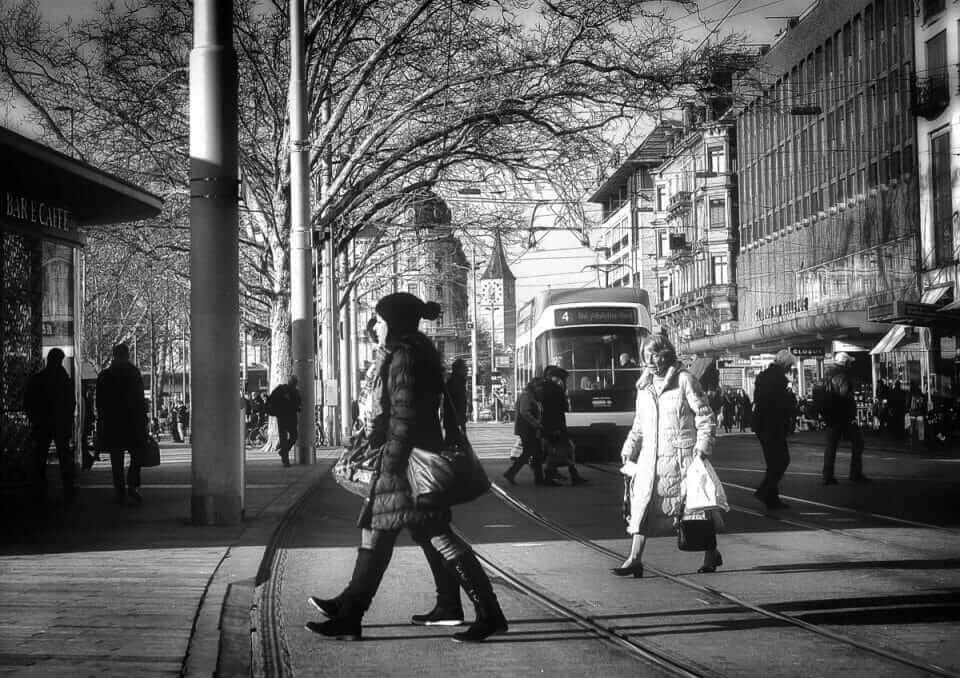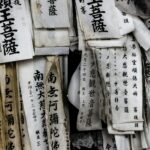
“But the one fight that never resolved was the one between my Bessarabian grandfather and my American Uncle Izzie, who drove a truck and married into the family long before I was born. And it happened during the late 1970s, during the Carter administration.”
One/Typesetting in Seattle
During the late 1970s, I worked as a typesetter at Art Type, a small graphic art agency in Pioneer Square, downtown Seattle. We were a small outfit, five women employees and two women owners, who offered a progressive workplace.
My new husband and I had been English majors, and we were a couple of years out of college. We’d lived in Greensboro, North Carolina for our first year of marriage, and I’d learned to typeset there, realizing that my B.A. in English didn’t translate into a job. Years later, after completing graduate degrees, I’d become an English professor, but, at this point, I had little idea of where my life was headed.
After Greensboro, on a whim, my husband and I decided to try living in Seattle, where we thought life might prove more interesting. We were Boomers, enjoying a youthful optimism—fortunate to be in our 20s at a time when the nation, recovering from Watergate, seemed full of promise, light, and disco.
I identified as a feminist and retained my maiden name after marriage; I’d participated in civil rights marches, anti-war protests, and the burgeoning environmental and feminist movements of the early 1970s in New York City. Although there was still much work to do, I felt convinced that Black Power, flower power, the environmental and feminist movements had materialized enough of the nation’s dreams so that social progress seemed inevitable.
Soon after arriving in Seattle, I landed my typesetting position. And in that first week of employment, the agency received a large job that was to define my short employment before graduate school—the typesetting of the nation’s Congressional Records, straight from Washington, D.C.
Typesetting at the time was a photographic process, one that involved developing a large canister of paper film in a darkroom. The typesetting machine had within it a large wheel with different sized lenses that rotated and clunked into place when changing type size or, as it was called, point size. I used a pica ruler and kerned letters to tighten word space or manipulate the visual effectiveness of a line. Small advertising work needed lots of manipulation, and the process required some amount of artistry. Larger jobs that consisted of lots of text needed less.
I remember Twyla, one of my bosses, inviting me into her office to explain the big job. Each week, we would receive a new file containing all or some part of a Congressional Record, and I needed to make it a priority to turn it around quickly. There’d be no need to manipulate type; accuracy and speed were required.
An early adopter of Goodwill, I often dressed in a second-hand jean skirt, clogs, and a t-shirt as the typesetting equipment on which I worked was tucked away in a corner of the open-space work area beneath old-fashioned, overhanging fluorescent lights. Co-workers visible to clients dressed more professionally.
“Great,” I told her because longer jobs were less demanding. I remember, however, feeling a little underdressed for the assignment and imagined myself walking the halls of Congress in my Goodwill outfit to deliver the job.
But, of course, that would never happen. I took the file to my machine, looking forward to getting into the “zone,” a headspace that allowed my fingers to travel the keyboard without thinking. Thinking, in fact, slowed them down. Although I had failed typing in high school, I now typed about 120 words per minute.
Two/Lillian Carter & Uncle Izzie
I grew up in and around New York City, and my extended maternal family was scattered among its boroughs—all but Staten Island. My mom’s parents were immigrants from Bessarabia, a country squeezed between Romania and Russia, then later partially absorbed by those countries, with the middle territory becoming Moldova, a poverty-stricken hellhole. I know this because a decade ago when I taught as a visiting professor in Iași, Romania, I traveled to Moldova’s capital city Chișinău, formerly Kishinev, the city from which my grandparents immigrated after the Russian Revolution. It’s an ugly place, with once-grand-but-now-decrepit buildings scattered among decaying Soviet-style block edifices and open-air markets filled with cheap imported goods, pickpockets, and thieves.
My immigrant grandparents had five children; my mother was the youngest. Growing up, I was surrounded by relatives—aunts, uncles, and older cousins—because I was the family’s last born, the youngest.
So, I’ll get to the point: Large ethnic families generate drama, and our family was no different. There were fights in Yiddish among members of the older generation and fights about inequities among the cousins.
But the one fight that never resolved was the one between my Bessarabian grandfather and my American Uncle Izzie, who drove a truck and married into the family long before I was born. And it happened during the late 1970s, during the Carter administration.
I heard about the fight second- or third-hand, from my mom. At the time, lots of media attention focused around the Carter family, both Jimmy’s brother Billy and also Lillian, Jimmy’s elderly mother—and this fight was about her.
My grandfather, then elderly himself, decided that Lillian Carter was “a good woman” and, thus, Jimmy Carter must be “a good man.” My grandfather was a diehard Democrat and a political junkie, having been personally so affected by the politics of Russia and Bessarabia. Uncle Izzie, on the other hand, a diehard Republican, decided that Lillian Carter was a Baptist phony and that no member of her family could be trusted.
The argument had begun while the two men watched the evening news at Uncle Izzie’s apartment, located in the same building but on a different floor than my grandparents’ apartment.
It was a loud fight that almost came to blows. I never learned the particulars. I only know that after this fight, they never again spoke to each other and went to their graves as enemies.
This rift gave my extended family lots to talk about during holiday dinner get-togethers, and, of course, it influenced the guest list, which never could include my grandfather and Uncle Izzie at the same event.
The fight became my family’s mini-version of the larger culture war heating up throughout America. It divided my family into the political right and left, and it brought home to me the extreme antipathy of both sides.
Three/Typo or Commentary
When the first installment of the Congressional Records came to my desk in 1978, I devoured it. Although I usually didn’t read the text that I typeset because, as I said, reading slowed my typing down, I couldn’t help myself. So, accepting the slower typing speed, perhaps down to 95-100 words per minute, I read.
But it was the second installment that really got my attention. In it, Ted Kennedy, the former liberal senator from Massachusetts, argued for universal healthcare and throughout the document referred to the United States as “these Un-tied States.”
At first, I thought Kennedy might be providing an ironic commentary on the burgeoning culture wars. But if that were the case, another member of Congress would have reacted or noted it in the record. So, I concluded that this was a typo made by the congressional recorder present during the session. But then, because the typo was repeated consistently throughout the document, I surmised that it was not a typo but rather the recorder’s comment. Of course, I corrected it as I typed, but the simple letter transposition dramatically changed the way the document could be read.
This happened the week after I’d heard about Uncle Izzie and my grandfather’s big fight.
It was a time—not unlike our own—in which family divisions mirrored the nation’s divisions.
Four/These Un-tied States
The United States—these past five-plus years—has become very divided. According to Alan Abramowitz, as quoted in Ed Kilgore’s New York Magazine July, 2021 article “We are Two Nations Divided”:
“One of the most important reasons why Democrats and Republicans intensely dislike each other is that they intensely disagree on a wide range of issues including the size and scope of the welfare state, abortion, gay and transgender rights, race relations, climate change, gun control and immigration. As long as the parties remain on the opposite sides of almost all of the major issues, the country, feelings of mistrust and animosity are unlikely to diminish….”
I agree; I see no sign that Americans will loosen their animosities or relinquish their positions. There are too many areas of disagreement, and we’re all too far apart. In essence, we’ve all dug in.
And although my own adolescence came on the heels of the Vietnam anti-war protests and the civil rights movements, the divisions that those cultural issues created remained for me on the street, on the television, and in the newspapers. They didn’t affect the fabric of my own family life.
I’m sure, in some families, those social issues hit closer to home. Young Vietnam-era draft-dodgers often disagreed wildly with their conservative parents, often tearing their families apart. Black families disagreed about the use of violence in civil right protests, and I’m sure that issue significantly divided their families.
My black high school friend, Eugene, I remember, was much more personally affected by this issue than I. His militancy created a huge and painful rift between him and his father when Eugene wanted to join the Blank Panthers. My other friend Ruben, whose parents immigrated from Cuba, became a left-wing radical and divided from his parents who felt themselves to be “Americans,” which meant complete loyalty to their adopted home—almost to the point of jingoism.
But my own real socio-political awakening came at the heels of this fight between Uncle Izzie and my grandfather. And their political division began loosening the threads of my family life.
The American Revolution divided families, as did the Civil War, less than 100 years later, and then the Vietnam War, almost 100 years after that. And in these conflicts, unlike the First and Second World Wars, families often unraveled and never knit back together again.
This was the case in my extended family. After this rift, cousins lost touch with each other, and the strong center that previously characterized my family no longer held.
Soon, both my grandfather and Uncle Izzie died, and as extended family members moved to other states, we lost track of each other, and our once-in-tact family never recovered.
In much the same way, our un-tied states never quite recovered from our cultural divisions—until perhaps 9/11, when we united briefly against a common enemy. But that event, too, soon divided us around issues of immigration, terrorism, and interventionism.
And now, even with a common enemy—our Coronavirus (COVID-19) pandemic—we’ve become so nationally divided that we can no longer stand together in the face of it. These days, any crisis only throws into high relief our many cultural and political divisions—divisions, which, I believe, enable opportunists like Donald Trump to rise, championing them until they become a rallying cry for extremism.
Our un-tied states, I believe, are in existential jeopardy. And I don’t think we’ll ever unite again—unless we’re faced with World War Three. But even then, I’m not sure we’d all agree or trust our president to do the right thing.
Five/America Un-tied
I’m getting on in years, now retired—or as I prefer to say “liberated”—from my full-time academic teaching position, caught in the netherworld of trying to reinvent myself, which is doubly difficult during a pandemic.
But I, like most Americans, have chosen sides and, unfortunately, have become part of the problem—and I can’t unite with those on the other side. Instead, I remain part of these un-tied states, participating in the further unraveling of our country.
What should I do? What should we all do? While I have no easy answer, I think that whatever good we can do should start with our families—with learning how to talk to each other again, with learning how to accept and forgive each other for what we can’t become.
If, like during the Civil War, our divisions could be clearly mapped, already we would be wracked again by a second civil war. But our divisions are more insidious—existing within communities, states, and families—and no longer easily identified by geography.
So, as I mourn the loss of these United States, I also move forward—holding onto my beliefs, yes, but trying to do so without animosity—for family members and for my fellow Americans.
And unlike the transposition I corrected so long ago, our divisions can’t be so easily corrected—even with lots of media attention aimed at our rifts, even with the potentially unifying enemy of COVID-19. We’re just too far apart. We can’t let our differences go.
So, with great regret, I conclude that America, for the foreseeable future, might have to remain un-tied. And if I were typesetting still today, I might not correct the typo.











